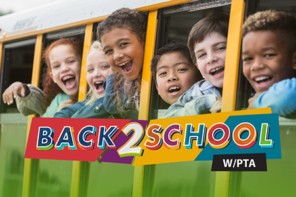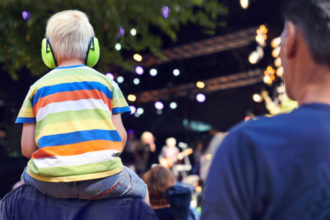Summer break is often seen as an idyllic time for teachers, parents and students to take vacations, have fun, and forget about the stress of school.
But for the growing number of students living in poverty, summer vacations can be a significant setback to their learning, researchers say.
“Summer learning loss is a significant contributor to the achievement gap,” says Sarah Pitcock, CEO of the National Summer Learning Association. “Every summer, low-income youth lose two to three months in reading achievement while their higher-income peers make slight gains.”
According to NSLA, these losses accrue each year, and by fifth grade, cumulative years of summer learning loss in reading and math skills can leave low-income students 2.5 to three years behind their peers. Further, disadvantaged students may also deal with food insecurities and safety issues when they are out of school.
Educators agree on the importance of keeping students engaged throughout the summer, but once the final school bell rings, it’s hard to keep in touch with students and parents. With that in mind, the National Association of Elementary School Principals has a “Report to Parents” with summer learning ideas that teachers and administrators can hand out. (A Spanish version is also available).
“It is important that educators provide families with information about what they can do at home during summer break to support what their children have been learning in school,” says Laura Bay, president of the National PTA. “It is also important that educators empower families with tools and resources they can use during the summer months to keep students engaged and support their learning.”
Learning First Alliance asked several of its members and experts in the field to give their thoughts and ideas for how parents can keep students engaged:
Bibb Hubbard, president and founder of Learning Heroes:
“The key is to make learning a fun part of the summer routine. Research shows students can lose months of hard-earned progress between the last day of school and the first, and parents have an important role in making sure this doesn’t happen. One idea is to start a family summer book club, giving your children a few books on topics they like from which to choose. Set weekly and summer goals, and come up with a reward together for the end of the summer when the books have been read. You can ask your child different questions, such as, “What surprised you most about the book?” Activities like this help your children advance their reading abilities, set them up for success in their next grade, and make reading a fun part of your family life, even in the dog days.”
Laura Bay, president of National PTA:
“Summer activities provide fun, teachable moments—connecting what children have been learning in school to real-life activities reinforces those skills. These moments also provide great opportunities to expose children to new ideas and information and encourage creativity. The work families do at home that’s connected to what kids do in school has the biggest academic impact. Studies also show that reading daily during summer break is the most important activity families can do to prevent learning loss. Take your kids to the local library and borrow books to read over the break and join your library’s summer reading club. And spend time reading together as a family—it helps children develop their literacy skills and excel academically.”
Mike Fisher, author and instructional coach:
“Summer is a GREAT time to start co-reading events where the parent(s) and the child read the same book and have discussions about happenings and inferences, as well as “post mortems” where everybody talks about the book in general… They can also support mathematical and scientific thinking by asking kids why and giving them discovery level events to keep them learning over the summer: trips to museums, zoos, an aquarium, or even the creek down the street, rocky outcrops at the beach, flora and fauna in a forest, angles and measurements at the local park–everything counts!”
For more great ideas to keep kids engaged and learning over the summer months, visit learningfirst.org. Also, check out these amazing webcams to help for some educational entertainment this summer.





